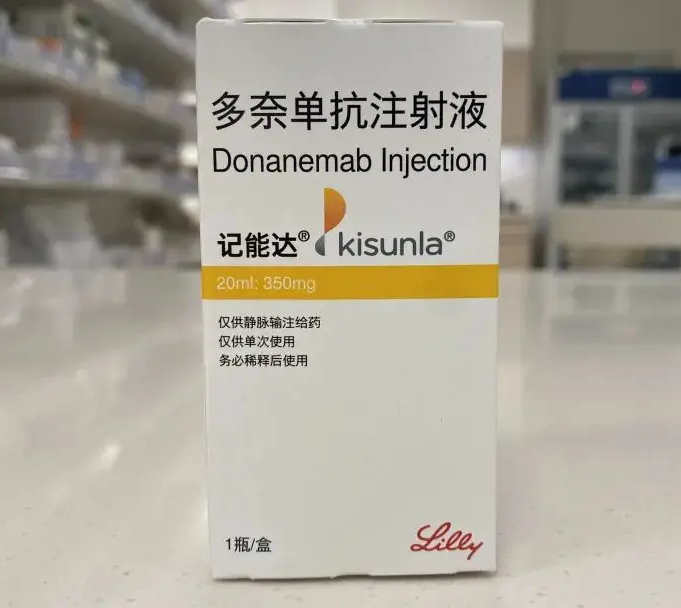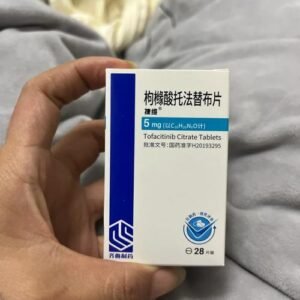donanemab injection 多奈单抗注射液,
Donezumab injection is a biological agent used to treat Alzheimer’s disease. It targets and removes beta-amyloid plaques in the brain and slows down the progression of the disease. The drug needs to be used under the guidance of a professional doctor and is a prescription drug. Before use, the patient’s indications and risks need to be evaluated, and adverse reactions need to be monitored regularly.
1. Indications and Mechanism of Action
Indications: Mainly used for patients with early Alzheimer’s disease (mild cognitive impairment or mild dementia stage) to reduce brain beta-amyloid deposition and slow cognitive decline.
Mechanism of Action: Donezumab is a monoclonal antibody that specifically binds to the N-terminus of beta-amyloid protein (Aβ), promotes its clearance, and reduces neuronal damage.
2. Usage and Dosage
Administration: Intravenous infusion, usually once every 4 weeks, the specific dose needs to be adjusted according to the patient’s weight and condition.
Treatment Cycle: Long-term medication is required, and efficacy and safety need to be monitored through regular clinical evaluation and imaging examinations (such as MRI).
3. Common adverse reactions
Amyloid-related imaging abnormalities (ARIA): including brain edema (ARIA-E) and microbleeds (ARIA-H), most of which are asymptomatic, but need to be monitored by MRI.
Other reactions: headache, dizziness, infusion-related reactions (such as chills, nausea), etc., usually mild to moderate.
4. Precautions and contraindications
Contraindications: Patients who are allergic to drug ingredients, patients with a history of severe cerebral hemorrhage or coagulation dysfunction are contraindicated.
Special populations: Pregnant, lactating and patients with liver and kidney dysfunction need to carefully assess the risk.
Medical guidance: APOE gene testing is required before treatment (to assess the risk of ARIA), and symptoms such as headache and vision changes during treatment require immediate medical attention.
5. Clinical research and efficacy
Phase III clinical trials have shown that donezumab can significantly slow down the rate of cognitive and functional decline in early patients (about 35%), but individual differences are large.
The efficacy is related to the start time of treatment, and the earlier the intervention, the more benefits may be obtained.
Important reminder: Donezumab is a prescription drug and must be used strictly according to the doctor’s instructions. Do not adjust the dose or stop taking the drug on your own. During treatment, you should cooperate with regular follow-up visits and imaging examinations to ensure safety and efficacy.
Share:
Products
Our offers
Health Classification
Let us work together to protect precious health




























